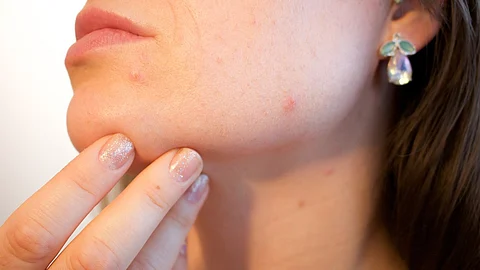The Role of Oil Production in Skin Health and Aging
One of the central factors in the development of acne is excess oil production by the sebaceous glands. Sebum, the oily substance that coats our skin, plays a critical role in keeping the skin hydrated and protecting it from environmental damage. However, overproduction of sebum can clog pores and lead to acne.
Interestingly, oil production may also influence the way our skin ages. Studies suggest that people with oilier skin may experience fewer visible signs of aging, such as wrinkles and fine lines. This could be because the natural oil in the skin helps keep it moisturized and may act as a barrier to prevent moisture loss. The excess oil that leads to acne could also contribute to a more plump, youthful appearance, as the sebum may help maintain the skin's structure and reduce the appearance of fine lines over time.
However, the flip side is that chronic inflammation and clogged pores (due to excessive oil) can lead to acne scarring, which can have a long-term impact on skin texture and appearance. So while oil production may play a role in maintaining youthful skin, it’s a balancing act—too much can lead to breakouts, while too little can cause dryness and premature aging.
Does This Mean Acne Is a "Good Thing"?
While the research into acne and telomeres is promising, it’s important to be cautious. Acne should not be considered a "good thing" just because it might offer some cellular benefits in the long term. Acne is still associated with scarring, hyperpigmentation, and emotional distress, which can have lasting consequences. Furthermore, not everyone with acne will experience the same potential benefits, and more research is needed to fully understand this link.
Acne Treatment Options
If you’re dealing with acne, it’s important to treat it effectively to minimize both the immediate and long-term effects. Here are some treatments commonly used to manage acne:
Topical treatments, such as retinoids, benzoyl peroxide, and salicylic acid, help clear acne and prevent new breakouts.
Oral medications, such as antibiotics, hormonal treatments, and isotretinoin (for more severe acne).
Laser therapies and light treatments to reduce acne scars and active breakouts.
Chemical peels to treat both active acne and acne scars.


